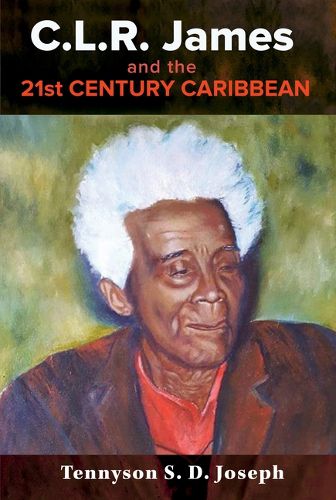Readings Newsletter
Become a Readings Member to make your shopping experience even easier.
Sign in or sign up for free!
You’re not far away from qualifying for FREE standard shipping within Australia
You’ve qualified for FREE standard shipping within Australia
The cart is loading…






Tennyson Joseph provides a comprehensive analysis of the relevance of C.L.R. James's political thought to twenty-first-century Caribbean politics. He clarifies, explains and justifies James's method, and applies his ideas to concrete political developments occurring in the twenty-first century Caribbean in its interconnection with the rest of the world. The work offers a unique treatment of James in three distinctive ways: firstly, in its scope and specific focus on the application of the thought of James to the post-Soviet Union, post-Cold War era of Caribbean politics; secondly concerning discussing the possibilities for radical, anti-systemic possibilities in the Caribbean in the early twenty-first century; and thirdly, in the employment of James's thought and method as an explanatory tool for understanding those contemporary issues. The book brings the ideas of C.L.R. James to a new generation of Caribbean and global readers and is a useful resource to all students, teachers, and activists interested in Caribbean politics, political ideas, and radical political theory.
$9.00 standard shipping within Australia
FREE standard shipping within Australia for orders over $100.00
Express & International shipping calculated at checkout
Tennyson Joseph provides a comprehensive analysis of the relevance of C.L.R. James's political thought to twenty-first-century Caribbean politics. He clarifies, explains and justifies James's method, and applies his ideas to concrete political developments occurring in the twenty-first century Caribbean in its interconnection with the rest of the world. The work offers a unique treatment of James in three distinctive ways: firstly, in its scope and specific focus on the application of the thought of James to the post-Soviet Union, post-Cold War era of Caribbean politics; secondly concerning discussing the possibilities for radical, anti-systemic possibilities in the Caribbean in the early twenty-first century; and thirdly, in the employment of James's thought and method as an explanatory tool for understanding those contemporary issues. The book brings the ideas of C.L.R. James to a new generation of Caribbean and global readers and is a useful resource to all students, teachers, and activists interested in Caribbean politics, political ideas, and radical political theory.